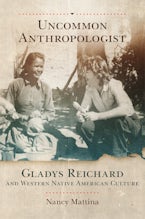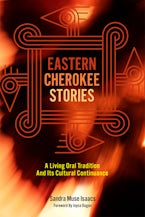LANGUAGE ARTS & DISCIPLINES
Showing results 1-10 of 39
Filter Results OPEN +

Latin Redux
A Second-Year Grammar Review
As the first book of its kind to supplement the curriculum of intermediate students, Latin Redux fills an important niche in Latin instruction. Classroom tested by the author, the handbook complements any Latin prose or poetry readings an instructor might select. Adding to its appeal, each chapter includes a fun “Lingua Latina Ubique” (Latin Language Everywhere) section that highlights how much Latin we use every day. The volume is further enhanced by Latin-to-English and English-to-Latin glossaries and a grammatical appendix.
The Manuscript Hunter
Brasseur de Bourbourg's Travels through Central America and Mexico, 1854–1859
Coupled with Sainson’s thoughtful introduction and annotations, these captivating, accessible accounts reveal Brasseur de Bourbourg’s true accomplishments and offer an unrivaled view of the birth of Mesoamerican studies in the nineteenth century.
The New Catalog of Maya Hieroglyphs, Volume Two
Codical Texts
This long-awaited resource complements its companion volume on Classic Period monumental inscriptions. Authors Martha J. Macri and Gabrielle Vail provide a comprehensive listing of graphemes found in the Dresden, Madrid, and Paris codices, 40 percent of which are unique to these painted manuscripts, and discuss current and past interpretations of these graphemes. Together the two volumes of the New Catalog represent the most significant updating of the sign lists for the Maya script proposed in half a century. They provide a cutting-edge reference tool critical to the research of Mesoamericanists in the fields of archaeology, art history, ethnohistory, and linguistics, and a valuable resource to scholars specializing in comparative studies of writing systems and related disciplines.
Nahuatl Theater
Nahuatl Theater Volume 3: Spanish Golden Age Drama in Mexican Translation
Nahuatl Theater, Volume 3 presents for the first time in English the complete dramatic works of Alva, the only known plays from Spain’s Golden Age adapted into the lively world of Nahuatl-language theater.
Lakhota
An Indigenous History
The Lakȟóta are among the best-known Native American peoples. In popular culture and even many scholarly works, they were once lumped together with others and called the Sioux. This book tells the full story of Lakȟóta culture and society, from their origins to the twenty-first century, drawing on Lakȟóta voices and perspectives.
Shooting Arrows and Slinging Mud
Custer, the Press, and the Little Bighorn
The defeat of George Armstrong Custer and the Seventh Cavalry at the Battle of the Little Bighorn was big news in 1876. Newspaper coverage of the battle initiated hot debates about whether the U.S. government should change its policy toward American Indians and who was to blame for the army’s loss—the latter, an argument that ignites passion to this day.
Uncommon Anthropologist
Gladys Reichard and Western Native American Culture
Drawing on Reichard’s own writings and correspondence, this book provides an intimate picture of her small-town upbringing, the professional challenges she faced in male-centered institutions, and her quietly revolutionary contributions to anthropology.
We Do Not Want the Gates Closed between Us
Native Networks and the Spread of the Ghost Dance
Documenting the evolution and operation of intertribal networking, Gage demonstrates its effectiveness—and recognizes for the first time how, through Native activism, long-distance, intercultural communication persisted in the colonized American West.
Eastern Cherokee Stories
A Living Oral Tradition and Its Cultural Continuance
In Eastern Cherokee Stories, Sandra Muse Isaacs uses the concepts of Gadugi and Duyvkta to explore the Eastern Cherokee oral tradition, and to explain how storytelling in this tradition—as both an ancient and a contemporary literary form—is instrumental in the perpetuation of Cherokee identity and culture.
Codex Sierra
A Nahuatl-Mixtec Book of Accounts from Colonial Mexico
The first known record of an indigenous population’s integration into the trans-Atlantic economy, and of the impact of the trans-Pacific trade on a lucrative industry in the region, the Codex Sierra provides a unique window on the world of the Mixteca less than a generation after the conquest—a view rendered that much more precise, clear, and coherent by this new translation and commentary.

Latin Redux
A Second-Year Grammar Review
As the first book of its kind to supplement the curriculum of intermediate students, Latin Redux fills an important niche in Latin instruction. Classroom tested by the author, the handbook complements any Latin prose or poetry readings an instructor might select. Adding to its appeal, each chapter includes a fun “Lingua Latina Ubique” (Latin Language Everywhere) section that highlights how much Latin we use every day. The volume is further enhanced by Latin-to-English and English-to-Latin glossaries and a grammatical appendix.
The Manuscript Hunter
Brasseur de Bourbourg's Travels through Central America and Mexico, 1854–1859
Coupled with Sainson’s thoughtful introduction and annotations, these captivating, accessible accounts reveal Brasseur de Bourbourg’s true accomplishments and offer an unrivaled view of the birth of Mesoamerican studies in the nineteenth century.
The New Catalog of Maya Hieroglyphs, Volume Two
Codical Texts
This long-awaited resource complements its companion volume on Classic Period monumental inscriptions. Authors Martha J. Macri and Gabrielle Vail provide a comprehensive listing of graphemes found in the Dresden, Madrid, and Paris codices, 40 percent of which are unique to these painted manuscripts, and discuss current and past interpretations of these graphemes. Together the two volumes of the New Catalog represent the most significant updating of the sign lists for the Maya script proposed in half a century. They provide a cutting-edge reference tool critical to the research of Mesoamericanists in the fields of archaeology, art history, ethnohistory, and linguistics, and a valuable resource to scholars specializing in comparative studies of writing systems and related disciplines.
Nahuatl Theater
Nahuatl Theater Volume 3: Spanish Golden Age Drama in Mexican Translation
Nahuatl Theater, Volume 3 presents for the first time in English the complete dramatic works of Alva, the only known plays from Spain’s Golden Age adapted into the lively world of Nahuatl-language theater.
Lakhota
An Indigenous History
The Lakȟóta are among the best-known Native American peoples. In popular culture and even many scholarly works, they were once lumped together with others and called the Sioux. This book tells the full story of Lakȟóta culture and society, from their origins to the twenty-first century, drawing on Lakȟóta voices and perspectives.
Shooting Arrows and Slinging Mud
Custer, the Press, and the Little Bighorn
The defeat of George Armstrong Custer and the Seventh Cavalry at the Battle of the Little Bighorn was big news in 1876. Newspaper coverage of the battle initiated hot debates about whether the U.S. government should change its policy toward American Indians and who was to blame for the army’s loss—the latter, an argument that ignites passion to this day.
Uncommon Anthropologist
Gladys Reichard and Western Native American Culture
Drawing on Reichard’s own writings and correspondence, this book provides an intimate picture of her small-town upbringing, the professional challenges she faced in male-centered institutions, and her quietly revolutionary contributions to anthropology.
We Do Not Want the Gates Closed between Us
Native Networks and the Spread of the Ghost Dance
Documenting the evolution and operation of intertribal networking, Gage demonstrates its effectiveness—and recognizes for the first time how, through Native activism, long-distance, intercultural communication persisted in the colonized American West.
Eastern Cherokee Stories
A Living Oral Tradition and Its Cultural Continuance
In Eastern Cherokee Stories, Sandra Muse Isaacs uses the concepts of Gadugi and Duyvkta to explore the Eastern Cherokee oral tradition, and to explain how storytelling in this tradition—as both an ancient and a contemporary literary form—is instrumental in the perpetuation of Cherokee identity and culture.
Codex Sierra
A Nahuatl-Mixtec Book of Accounts from Colonial Mexico
The first known record of an indigenous population’s integration into the trans-Atlantic economy, and of the impact of the trans-Pacific trade on a lucrative industry in the region, the Codex Sierra provides a unique window on the world of the Mixteca less than a generation after the conquest—a view rendered that much more precise, clear, and coherent by this new translation and commentary.











